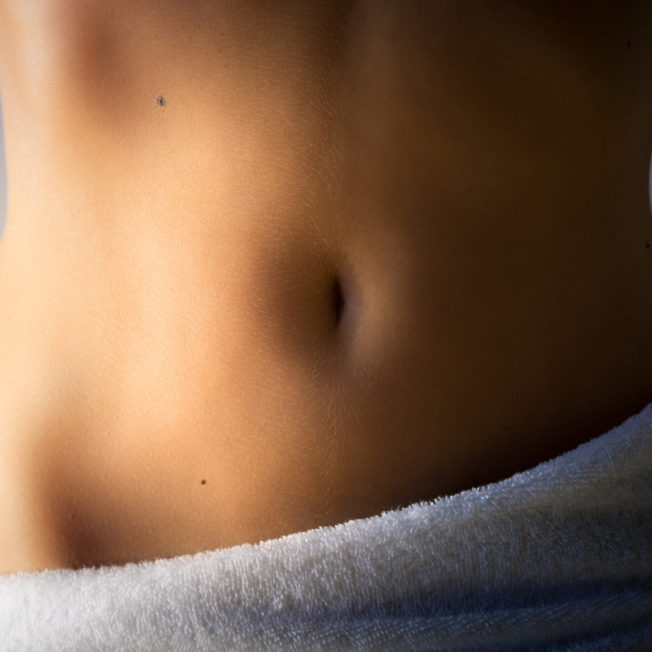Sometimes I feel like we were all so excited when birth control — namely, the Pill — became widely available, that we didn’t stop to ask questions or consider the long-term implications. Personally, I was handed a prescription for the Pill at 15 as a way to deal with the acne that had taken over my post-pubescent face, and I didn’t think twice about filling it (neither did my mother). I mean, clear skin, a regular period, and less cramping? Sign me up! It wasn’t until I decided to get off birth control over a decade later that I realized the impact it had on my hormones.
Of course, that’s not to knock the Pill. Birth control is an incredible tool that’s necessary for women’s reproductive freedom. But the decision to start birth control, or stay on it, isn’t one that should be taken lightly.
Ahead, a brief overview of a handful of buzzy birth control methods — pros, cons, and all.
The Pill
The Pill is by far the most common form of birth control. When taken correctly, the Pill is 99% effective at preventing pregnancy, but it does need to be taken on a strict daily schedule in order to do its job. A monthly dose of the Pill involves 21 days of tablets that specifically engineer your hormones to prevent pregnancy, and seven days of “sugar pills” — these seven days are theoretically when you should get your period. However, the hormone dosage from the previous 21 days can sometimes stop your period altogether (which for some women is a major plus).
It’s not without its side effects, though. Some studies have found that long-term exposure to the Pill’s manufactured hormones may slightly increase your risk for breast cancer, cervical cancer, and perhaps even infertility (although more research needs to be done in this area); as well as affect weight loss and weight gain, libido, skin issues, and more.
Hormonal IUD
A hormonal IUD (that stands for intrauterine device, by the way) is a small piece of plastic that’s implanted in the uterus and emits a low dosage of localized hormones to prevent pregnancy. One IUD lasts for three to seven years — so it has a definite advantage over the Pill there, since you can “set it and forget it.” The hormones released by the IUD are localized to the uterus and surrounding areas, so it’s said to be less risky than the Pill in terms of hormone interference, but that’s not always the case.
Studies have linked the hormonal IUD to everything from depression to weight gain to increased acne and facial hair, thanks to the progesterone (a “male” hormone) it emits. Some OB-GYNS discourage anyone who’s previously dealt with mental illness, anxiety, or depression from getting a hormonal IUD for this reason.
Copper IUD
The copper IUD functions similarly to the hormonal IUD in that it’s a small device that’s implanted into the uterus and lasts for a number of years. Instead of using hormones to block pregnancy, though, the copper itself acts as spermicide by increasing sperm-killing copper ions and white blood cells — and for those who aren’t looking to alter their natural hormone levels, this is a great choice.
You’re safe from any hormonal imbalances with the copper IUD, but the trade-off is that it can make periods heavier and more painful. Additionally, some practitioners and patients in the holistic community are wary of the long-term effects of copper, as it’s considered a heavy metal — and high doses of heavy metal in the body can be toxic, causing all sorts of health risks (from stomach cramps to cancer).
Fertility Tracking
If none of the above methods sound appealing to you, or if you like to keep your body as natural and free from hormones, plastic, and copper as possible, you may enjoy the cycle tracking method. There are plenty of apps for this — a great one is MyFLO — which essentially collect data about your personal menstrual cycle and help you determine the days of the month when you’re most fertile. It’s recommended to refrain from sex (or to use an alternative method of contraception, like a condom) in the two days leading up to your most fertile days and the two days after.
Of course, apps can be faulty — and there’s an element of human error here, too, when you consider that you need to accurately input the data yourself. Most would not consider this method to be as effective as the Pill or an IUD.
Temperature Method
You can add another layer of protection to your natural fertility tracking by incorporating a temperature-talking tool, like Daysy. Your body temperature increases by 0.25 to 0.45°C around the time of ovulation; so by taking your temperature every morning with a smart device, you can gather extra data about your fertility — which you can then use to make informed decisions about having sex, abstaining, or using an additional contraceptive.
Again, this isn’t considered a “foolproof” method by any means, so it’s recommended to use a backup form of contraception, like a condom, around peak fertility times.
At the end of the day, birth control should be synonymous with freedom; whatever that looks like for you. If freedom means never having to think about unexpected pregnancy, you may prefer the Pill or IUD. If freedom means free from artificial hormones and carcinogenic materials, you may find your solution in fertility awareness tracking. Whichever way you lean, seek input from your OB-GYN and medical care team to find the birth control method that suits you and your lifestyle best.


















